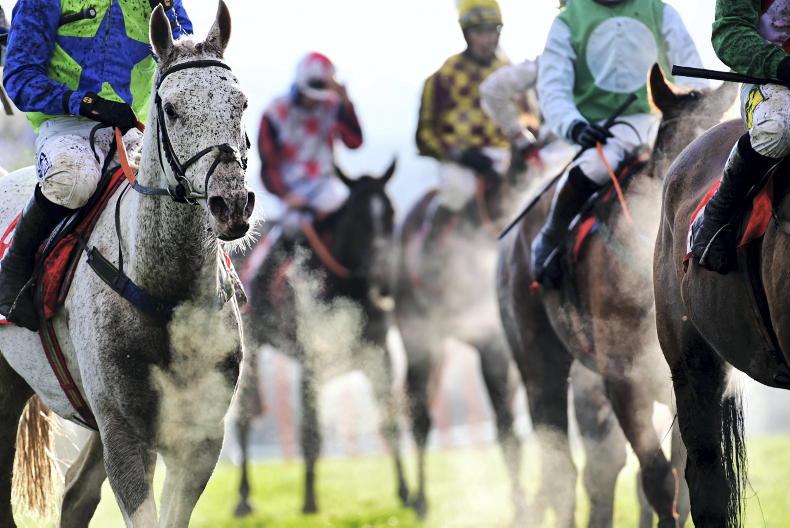The 2025 Cheltenham Festival will go down as the year of the shock result.
Heading into the meeting, we were staring at a handful of seemingly unbeatable favourites, namely Kopek Des Bordes, Majborough, Constitution Hill, Lossiemouth, Ballyburn, Jonbon, Fact To File, Teahupoo and, of course, the great Galopin Des Champs.
Only three of those nine won, resulting in a festival where the bookies cleaned up on all four days.
So, perhaps we all lost a few quid but did we at least learn something? Here’s what I took from the week.
1. Cromwell’s Star rises again
There weren’t too many winners tipped in this space before Cheltenham, though we did mention that Gavin Cromwell was likely to have at least a couple of winners.
From 26 runners, he had two winners and nine placed horses. For context, Gordon Elliott had 52 runners which yielded just one winner and 11 placings. Cromwell’s haul included the Gold Cup with Inothewayurthinkin, confirming the trainer’s gift of getting the best from horses of all abilities.
Even though the Gold Cup winner will not be going to the Grand National, don’t be surprised if his trainer wins the famous Aintree race with something else.
2. Return of the outsider
A few years ago it was common enough to see Willie Mullins win at Cheltenham with outsiders – horses overlooked by stable jockeys Ruby Walsh or Paul Townend. But that stopped happening when the Dublin Racing Festival took off in 2018.
The Leopardstown meeting in early February continues to produce shocks, but it leaves the Mullins team better informed as to their pecking order. Now when Cheltenham swings around, Townend tends to be on the right one. At least until this year.
Wins for the Mullins-trained Lecky Watson (20/1), Jimmy Du Seuil (16/1) and Poniros (100/1) showed that the ‘Mullins outsider’ theory still has legs. There is some satisfaction in knowing that even those who work with these horses every day don’t know exactly how good they can be until raceday.
3. Fairytales do come true
As someone who has for years now been peddling the notion that only millionaires can have Cheltenham winners, it was refreshing to see that belief challenged numerous times this year.
The Champion Hurdle winner Golden Ace cost just €30,000 (12,000gns), while Bumper winner Bambino Fever cost in the region of €30,000. Haiti Couleurs €81,000 (£68,000), Jazzy Matty €60,000 (£50,000), Wonderwall €40,000 (£33,000) and Wodhooh €62,000 (50,000gns) were also relatively affordable, while Cross Country winner Stumptown probably didn’t cost his syndicate a fortune either. The 28 races were divided among 16 individual trainers These results should encourage more new owners to have a go.
4. Miracles do happen
How else can you explain the victories of Marine Nationale and Jazzy Matty within 45 minutes of each other? Two years earlier both horses had won on the same day at Cheltenham when ridden by Michael O’Sullivan, the 24-year-old jockey who died in February. Michael was ever-present in everyone’s mind at Cheltenham this year. The opening race was named after him and several jockeys, trainers and owners dedicated their festival success to his memory.
When Marine Nationale won the Champion Chase it seemed like fate. But when Jazzy Matty won the next race it seemed to go beyond coincidence. Michael was writing the results himself.
5. Race starts need a rethink
Seven races had false starts during the meeting, with runners deemed to be approaching the starter with too much speed. Under the current rules in Britain, when a false start is called it means all runners must stand still for the second attempt. This frequently means one or two horses get left behind or even whip around at the exact wrong moment and lose all chance.
Willie Mullins says too many races were started around a bend, which forced the horses on the outside to break into a canter just to keep up with those walking on the inside. The herd instinct then takes over and, before you know, they are all going too fast.
From the starter’s point of view, they feel they can’t let the race begin under those circumstances, even if all the horses and riders would have been happy to go. The starters know from experience that the riders will be even bolder in the next race, in the belief that it will be allowed, and soon it will be a stampede.
The British Horseracing Authority should consider some new strategies over the summer. Can the location of some starts be moved? How do others do it? And should there be more severe punishments for jockeys who break the rules?
6. Back to Black
Rachael Blackmore went into this year’s Cheltenham Festival with 16 previous winners to her credit, but that did not tell the full story. The 35-year-old has had a very tough season. She missed three months through injury (end of September to mid-December) and winners have been hard to come by.
There were whispers that maybe she had nothing left to prove and should retire. Add in some doubts about the well-being of Henry de Bromhead’s horses, and you could see why nobody was tipping Blackmore to have a good Cheltenham.
Sure enough the first day of the meeting did not go especially well for either rider or trainer, but they managed two good placings on day two. Then on the third day they popped up with two top-class winners – Air Of Entitlement and Bob Olinger. In both cases Blackmore showed her hallmark sense of timing and pace, saving her mounts’ energy for the final stages as others weakened.
She has now won the Champion Hurdle, Champion Chase, Stayers’ Hurdle, Ryanair Chase and Gold Cup in only five years. A remarkable achievement.









SHARING OPTIONS